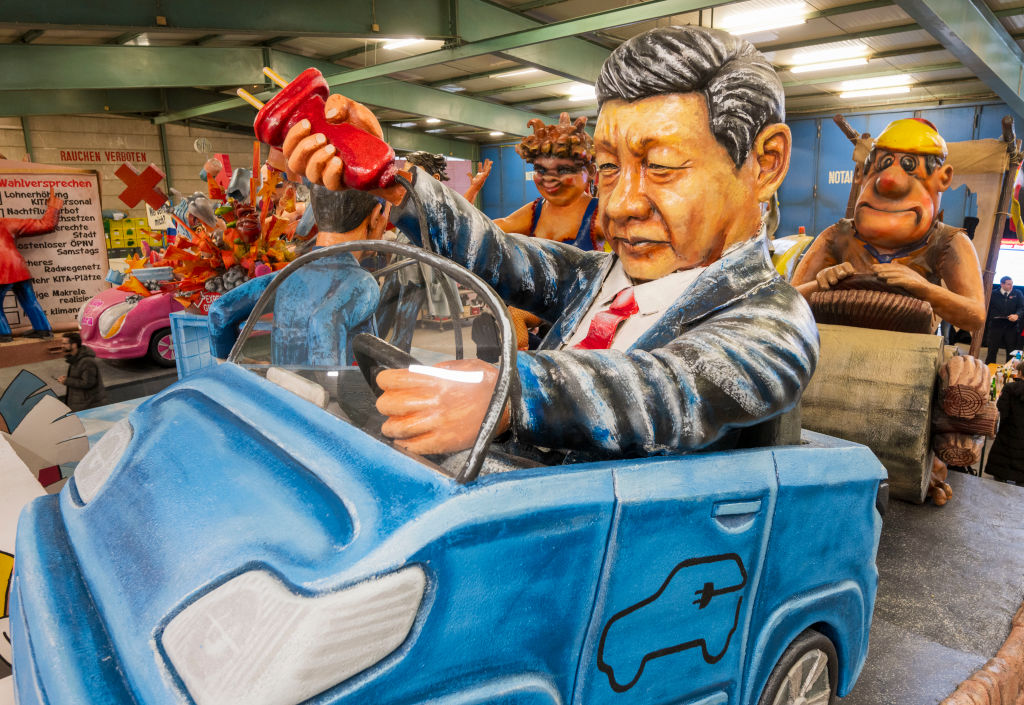Already, it seems that China’s state-led approach is working. It has, for instance, been highly successful in nurturing China’s Electric Vehicle industry. Why else would the European Union threaten China with EV tariffs of up to 38%? But Beijing’s strategy doesn’t always work: it is far less effective in fields such as AI and life sciences than in physics and engineering.
What explains this apparent inconsistency? Let us recall the Chinese bureaucrat and his English aristocratic counterpart. The founders of Nature, the world’s leading scientific journal, and those other eminent Victorians who did so much to drive the Industrial Revolution, existed in a humanistic and omnivorous intellectual world that was far less specialised than science is today. Western science was driven by brilliant amateurs long into the 20th century: in hindsight, Watson and Crick’s groundbreaking 1953 double helix paper looks more like the notes you take after a brilliant conversation during a drunken lunch, with the illustrations taken from the napkin you stuffed in your pocket. It certainly couldn’t be published today, and back then, it wasn’t even peer reviewed. Those were the days when science was the preserve of absent-minded gentlemen slowly untangling the threads of the world.
The mental world of the English language scientist, from John Milton’s Lucifer to Charles Darwin, and on through to the Silicon Valley tech bros of the present day, is a world driven by insatiable curiosity, rather than state policy. This is why Lucifer is the sly hero of Paradise Lost; the quest for knowledge has always been prized above all else. It was natural for English political thinkers to see society as being a war of all against all, rather than a team effort led by one authority. The English mind “looks down on all that are haughty; it is king over all that are proud”.
These Englishmen were free thinkers precisely because they were landowners, with the time and resources to wander the world asking questions. These free-associative questions are at the heart of scientific breakthroughs, the zero to one of pure intuition. Today, these sorts of breakthroughs — the ones that ask basic questions about why the world is organised in the way that it is — are the preserve of American and, to a lesser extent, English scientific researchers, often those working at startups such as OpenAI rather than within academic institutions. In 2024, Stanford University dropped out of the Nature Index’s top 10 institutions by research output (of which seven are Chinese). That’s not because the researchers of Silicon Valley are losing their touch, but because they would rather win the war of all-against-all that is capitalist competition. They don’t bother to submit their work to Nature anymore — they’d rather go straight to venture capital offices on Sand Hill Road.
But money is not their sole motivation. Elon Musk is surely not indifferent to his fortune, but profit alone cannot explain his Promethean ambition, which resists the authority of America’s feeble government. In this light, it’s not surprising that many in Silicon Valley support Donald Trump. If all you dream about is pushing the boundaries of AI, Trump might appear attractive candidate, as he is less likely than Joe Biden to implement a wave of regulations. Either way, California’s tech bros aren’t cowed by the power of the state. Unlike in China, where the government is the sovereign, America’s true government is capitalism. If the Peter Thiels, Elon Musks and Balaji Srinivasans of the world see the White House as irrelevant and ineffective, who can blame them?
This libertarian, largely unregulated tangle of individuals is up against the state-run colossus that is Chinese science. The micromanaged industry is the offspring of thousands of years of the Chinese keju system, which chose elites based on meritocratic contests: who could memorise the rules most accurately? Unsurprisingly, these elites enforced, and revelled in, the contours of law. The Plan was everything; exile from the state was exile from life itself. (Most famous Chinese poets, from Qu Yuan to Li Bai to Su Dongpo, were fired from jobs as government ministers and took up poetry as a hobby; these men are the only true Chinese analogues to the English gentleman.)
Today, the Chinese system is enormous and fiercely competitive. But those who compare Chinese science to Soviet science are mistaken: their strengths are quite the opposite. The Soviet Union harboured creative figures, such as Vladimir Vernadsky and Nikolai Fedorov, who arguably came up with breakthrough concepts that erred on the side of wackiness, even as they found no structure or system to articulate and realise their work. The Soviets arguably invented the Internet, for instance, but never really scaled it; America’s big consumer market provided the opportunity for that. By contrast, the Chinese didn’t invent EV cars, solar panels or digital payment systems; they merely applied them at the massive scale of China.
For now, China’s skills lie in accelerating the improvement and driving down the prices of technologies others invented, to the point that they spark a global revolution. A comparison can be drawn with interwar German physics, which came to its high point in suburban California, Princeton and the deserts of New Mexico. The Chinese tend not to go from zero to one, rather, they go from one to 100.

